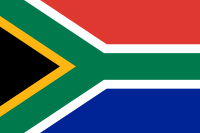 [Lotti Rutter, Treatment Action Campaign, Link (CC-BY] Achieving the National Strategic Plan (NSP) objectives depends on the effective use of the national health budget. But is there sufficient emphasis on value for money in the health sector at a time when South Africa is struggling to meet its targets of placing 80% of eligible patients on ART and reducing TB deaths by 50%? Or is money being wasted lining the pockets of the pharmaceutical industry that manipulates the system to make ever-increasing levels of profit?
[Lotti Rutter, Treatment Action Campaign, Link (CC-BY] Achieving the National Strategic Plan (NSP) objectives depends on the effective use of the national health budget. But is there sufficient emphasis on value for money in the health sector at a time when South Africa is struggling to meet its targets of placing 80% of eligible patients on ART and reducing TB deaths by 50%? Or is money being wasted lining the pockets of the pharmaceutical industry that manipulates the system to make ever-increasing levels of profit?
According to the agreement on Trade Related Aspects of Intellectual Property Rights (TRIPS), member countries of the World Trade Organization (WTO) must respect a period of patent protection lasting 20 years. During this time, a patent holder maintains exclusive rights to their product. This lack of a competitive market allows pharmaceutical companies to charge unaffordable prices in order to maximise profits – meaning life-saving medicines remain inaccessible.
The success of the ART scale-up in South Africa to date was only possible because of major price drops achieved through the introduction of generic competition. The cost of a standard first-line HIV drug regimen dropped from as much as R100,000 per patient per year (ppy) in the 1990s to less than R1080 ppy in the public sector today. These changes were largely the result of individual cases of litigation or complaints to the Competition Commission; yet we cannot rely on these approaches to ensure access to newer medicines. Instead we must utilise legal safeguards outlined in the TRIPS agreement to improve access to medicines more broadly. Whilst many other countries have used these pro-public health measures, South Africa has yet to amend its patent laws to incorporate them.
In contrast South Africa blindly hands out drug patents without substantively examining them. In 2008 alone South Africa granted 2,442 pharmaceutical patents (almost exclusively to foreign companies), whilst Brazil only granted 278 pharmaceutical patents between 2003 and 2008. A University of Pretoria study found that 80% of patents upheld in South Africa do not meet its patentability standards. This type of excessive patenting – including granting multiple patents on new forms, new uses and new formulations of an original compound – maintains artificially high prices for extended periods of time and is hugely problematic for public health.
The Department of Health spent R5 billion procuring pharmaceutical products in 2012, indeed imported medicines are the fifth largest driver of South Africa’s trade deficit. By volume, South Africa imports most of its medicines in generic form from India, and the majority of its active pharmaceutical ingredients from China. Yet despite this, branded medicines remain the significant driver of this expenditure.
With time these costs will inevitably increase. Demand will rise as additional eligible patients are initiated on to life-long treatment in line with NSP targets, at earlier CD4 counts in accordance with changing treatment recommendations. As resistance to treatment develops, people living with HIV will be shifted to second or even third-line regimens. Many of which remain under patent protection – the current third-line option costs R18,000 ppy. Unless we redress the imbalance in the patent system, costs will rise sharply.
In addition to creating access barriers, patents also impede innovation. If pharmaceutical companies continue to profit from making minor modifications to existing medicines, why would they invest in riskier, more expensive R&D? Under the existing patent system, R&D is motivated by the reward of high profits attained through patents. Inevitably, there is little incentive to develop drugs that are going to be consumed primarily by the poor. The dire state of drug resistant TB treatment highlights the neglect caused by this system.
Every Rand spent on branded medicines is money diverted from the wider health system. Is it cost-effective to procure medicines with hugely inflated price tags despite the existence of legal flexibilities to reduce these costs? Or is it morally and constitutionally reprehensible to put foreign pharmaceutical profit above people’s lives?
The government is attempting to address this imbalance. In September the Department of Trade and Industry (DTI) released a long awaited draft policy, which in part aims to incorporate TRIPS flexibilities into national patent law in order to improve access to affordable, quality medicines in the country. The TAC, SECTION27 and MSF jointly submitted recommendations to improve the ‘Draft National Policy on Intellectual Property’ (DNPIP) with support from over 150 civil society organisations, academics and experts globally. Without major reform of the South African patent system as outlined in our recommendations the NSP targets will remain a pipedream. The current patent system fails local industry and impedes innovation. Most seriously, it costs lives.




